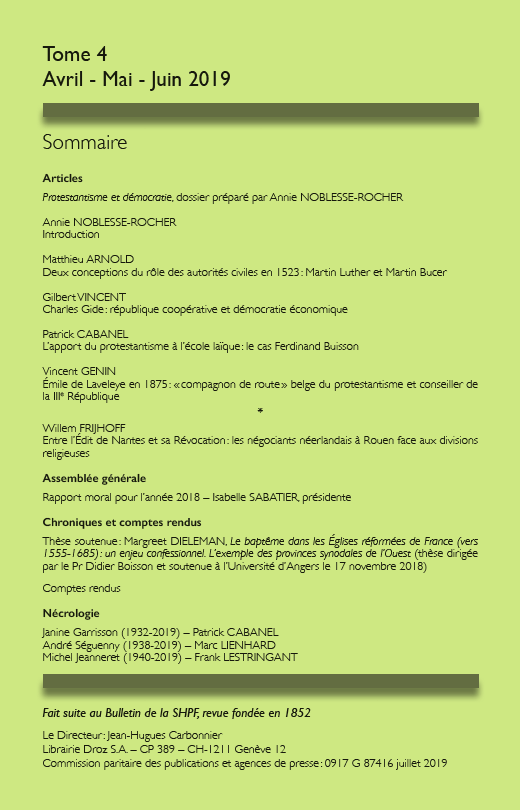L’apport du protestantisme à l’école laïque
Le cas Ferdinand Buisson
Abstract
Ferdinand Buisson offers a good case study for re-examining the twentieth-century historiography that argued for the recognition of a greater plurality in French history at the hand of Bayle, Quinet, or the Protestant fathers of French political secularism. “Buisson” was not just a man, but a group, a generation, a moment; he represented a spiritualist, Kantian, and “Protestant” secularism that does not evoke the names of Neo-Positivism’s Comte or Littré, but rather those of Kant, Pestalozzi, and Renouvier. It was both a failure and a success: France did not become a republic after the example of Switzerland or North America, as Buisson’s close friend Félix Pécaut would have had it, but it did manage to give the Republic a permanence, interiority, and even a kind of spirituality as the fruit of an unprecedented encounter between the old nation and its Protestant minority.
- Patrick Cabanel, Enchanter, désenchanter l’histoire du Refuge huguenot, Revue d'histoire du protestantisme: Vol. 2 n° 3 (2017): Varia
- Patrick Cabanel, Au miroir du pluralisme : minorités protestantes et juives en Europe du XVIe au XXe siècle, Revue d'histoire du protestantisme: Vol. 2 n° 4 (2017): Regards croisés sur le fait religieux minoritaire en France et en Europe
- Patrick Cabanel, Janine Garrisson, Revue d'histoire du protestantisme: Vol. 4 n° 2 (2019): Dossier & Varia
